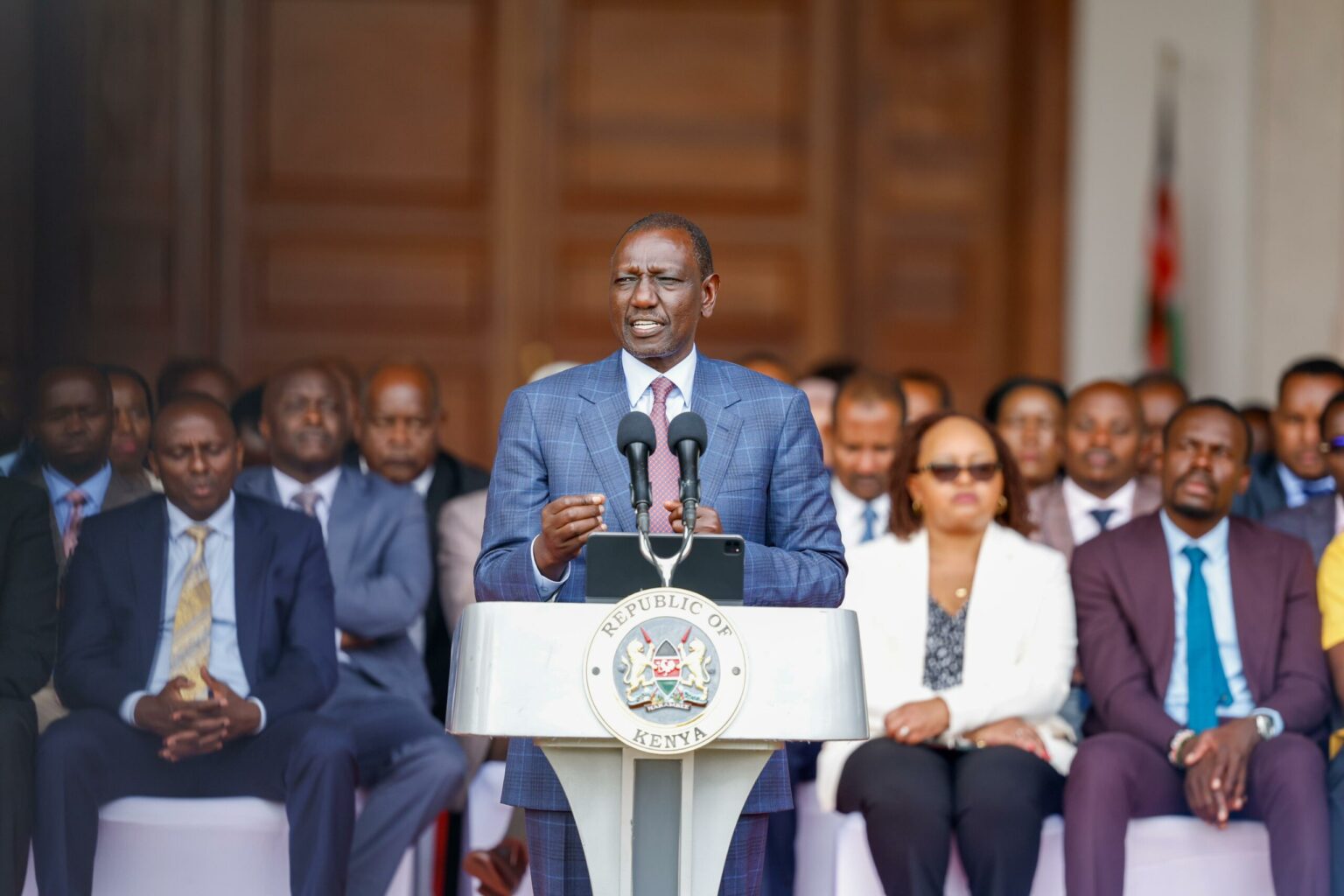- Ruto has bowed to public pressure and withdrawn the Finance Bill 2024, a piece of legislation that contained contentious tax increases.
- His move follows deadly protests that engulfed Kenya on Tuesday leaving 22 dead and part of parliament set ablaze.
- President Ruto: “It is clear that Kenyans want nothing to do with the bill. I concede.”
Kenya’s President William Ruto has bowed to public pressure and withdrawn the Finance Bill 2024, a piece of legislation that contained contentious tax increases, following deadly protests that engulfed Kenya on Tuesday.
The demonstrations, which saw parts of the parliament set ablaze, have been described as the most significant since Ruto took office in 2022.
In a national address late Wednesday, President Ruto acknowledged the widespread opposition to the bill, stating, “It is clear that Kenyans want nothing to do with the bill. I concede.” He assured the public that he would not sign the bill into law, aiming to quell the unrest that had claimed at least 22 lives, according to the Kenya National Commission on Human Rights.
In his memoranda to the National Assembly, Ruto said, “In exercise of the powers conferred to me by Article 115(1)(b) of the Constitution and having reservations on the contents of the bill in its entirety, I decline to assent to the Finance Bill, 2024, and refer the Bill for reconsideration by the National Assembly with the recommendation for the deletion of all the clauses thereof.”
“I also propose that within the next 14 days, a multisectoral, multi-stakeholder engagement be held with a view to charting the way forward on matters relating to the content of the bill as well as auxiliary issues raised in recent days on the need for austerity measures and strengthening our fight against corruption,” the President explained.
Additionally, Dr Ruto said his administration will start rolling out further austerity measures to cut on runaway expenditure, a move that will target operations in the “entire executive arm of the government.”
“I direct that operational expenditure in the Presidency be reduced to remove allocations for the confidential vote, reduce travel budget, hospitality and purchase of motor vehicles, renovations and other expenditures,” said Ruto.
The nationwide protests on Tuesday escalated into chaos as demonstrators broke into the parliament building, vandalizing the interior and setting parts of the complex on fire.
President Ruto show of defiance softens
Protesters were seen carting out of parliament the ceremonial mace, a symbol of legislative authority, during the ensuing chaos that also saw the police shoot live bullets at the youth.
Initially, President Ruto reacted with a show of anger and defiance, labeling the protests as “treasonous” acts, and ordering the immediate deployment of the military to restore and maintain order, adding that “violence and anarchy” would not be tolerated.
However, faced with an extraordinary demonstration of people power, Ruto’s stance appeared to soften on Wednesday. In his second address to the nation in under 24 hours flanked by lawmakers and some governors, the president explained his rationale for the proposed tax increases, which he asserted were vital in helping cut Kenya’s debt of over $80 billion. At the moment, servicing the country’s debt obligations takes away over half of Kenya’s tax revenues every year.
However, the protests which are primarily organized by Generation Z and the millennial segment of the society are not showing signs of abetting even with increasing calls to call off Thursday’s plan to march to State House Nairobi.
Even with President Ruto’s assurance, the online charter is fast morphing, with an increasing number of protesters calling for President Ruto’s resignation under the banner “Ruto must go”. At the same time, social media influencers are urging caution, warning that a march to the State House has the potential of turning into a bloodbath.
“Morning people, DON’T GO to State House. You have legitimate plights. You will lose it if you become unreasonable. Avoid State House,” said elected ward representative and influencer Robert Alai [@RobertAlai] on X.
In yet another tweet an hour later, Robert added, “Whoever is now mobilizing young people for further protests is killing their legitimacy and destroying them so that they will not be taken seriously again. Don’t go to STATE HOUSE. If possible, don’t protest today.”
Rejection of unpopular Finance Bill 2024
Hotelier Mohammed Hersi [@mohammedhersi] and political commentator noted on X, “Your actions led to a complete rejection of the unpopular Finance Bill. Good people—that’s a major win in that people’s voices is what counts and matters. Now any talk of marching to the state house is ill-advised and equally dangerous…Any march to the state house with a view of removing a duly elected government is considered a coup, and it will not end well.”
William Ruto ascended to the presidency after narrowly defeating his main rival, Raila Odinga, in the August 2022 general election. His tenure in office has been marked by efforts to fix Kenya’s economic woes, but the proposed tax increases have proven deeply unpopular, sparking public outcry.
As East Africa’s largest economy navigates this turbulent period, the focus shifts to the youth who were at the forefront of the protests. The president expressed his intent to engage in dialogue with young Kenyans, acknowledging their critical role in the demonstrations, a signal of a potential shift in governance strategy, aiming to foster greater inclusivity and address the concerns of the younger population.
Overall, the situation remains fluid, with the potential for further protests engulfing the country.
Read also: Nation on edge: Kenyans protest against President Ruto’s tax hikes

